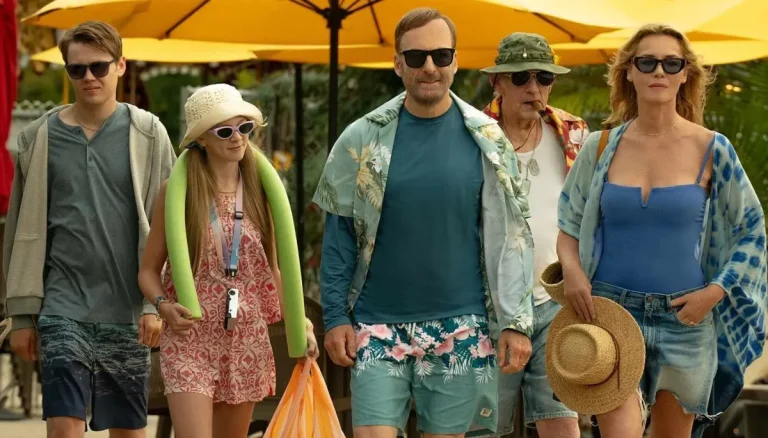Movies like “Wolfs”: The Jon Watts-directed film “Wolfs” bypasses its theatrical release and streams on Apple TV+. It stars two Hollywood movie stars in an era when the conception of stardom feels quaint. But this movie, too, feels quaint and package-oriented—a modern reimagining of a small yet star-driven vehicle, driven entirely by the charisma of its two leads in a simple yet enjoyable crime story.
“Wolfs” also brings back a concept of fiction not utilized in crime films in a while—the fixers. It stars two fixers who get embroiled in cleaning up the same crime scene and soon find themselves way over their heads when they realize the crime is much more complicated than they had bargained for. The concept of a fixer generally pertains to a man dedicated to solving problems. What is interesting is how the dimensions of the job change according to the problem the source profession demands.
The basic caveats of this list are simple. Firstly, the fixer should either be a notable figure in an ensemble-driven story or the fixer should be the lead. Secondly, the movie’s two central features—the leads, the setting of the film, and the overall tonality—should be somewhat similar.
6. The Instigators (2024)
Another Apple TV+ original film on the list, this Doug Liman directorial follows two unlikely and incompetent thieves, Rory and Cobby (Matt Damon and Casey Affleck), who plan a heist during the busy local election night, but their ill-conceived plan goes awry, leaving them amid a chase from bureaucrats, the police, mob bosses, and a vengeful politician.
To call this the “Minor League Ocean’s Eleven Reunion” wouldn’t be too far off because this, too, reunites two alums of the popular Ocean’s franchise, Matt Damon and Casey Affleck. Like “Wolfs,” this is one of those movies that is like a deadpan and lighthearted take on a crime film, though it gets off the rails far more than “Wolfs” does. Affleck channels the low-key charm and deadpan energy of his character in the Ocean’s film Virgil Malloy but heightens it just slightly in the case of Cobby. It is also very funny in some instances, with Affleck having the most memorable dialogue. At the same time, Hong Chau, as the psychiatrist, continuously monitors Damon’s character’s mental health in absolutely ludicrous situations, which is funny.
5. After Hours (1985)
Post-Raging Bull, characterized by a slightly off-kilter 1980s oeuvre that gains much more appreciation today, is “After Hours,” coming off after “The King of Comedy.” It follows Paul Hackett, an uptown Manhattan office worker who ventures towards the SoHo district for a hookup in the dead of night, only to find himself embroiled in a series of misadventures that become more consequential and surreal as the night progresses.
It differs from Scorsese’s wheelhouse of gangster films in that it chooses to create a plotline stretching for an entire night. He inclines to show the city’s weirdness once the clock strikes post-midnight. However, it is pretty telling that all of those bizarre occurrences faced by Paul (Griffin Dunne) are also due to his reactions towards each of the peculiar occurrences, where hostility further increased the frequency and the potency of the weirdness as the night progressed. It is easily the quintessential “night-gone-wrong” genre of film and could easily be the perspective of Austin Abrams’ character in “Wolfs” if one chooses to imagine how his night would go and the bizarre twists and turns that would take. Watts had been somewhat inspired by “After Hours” and Kevin Jarre’s “Miracle Mile” for “Wolfs.”.
4. Pulp Fiction (1994)
It’s a bit of a cheat here, considering that the entire film is not considered. Instead, the section of the film dealing with Vincent (John Travolta) inadvertently blowing the head of one of his hapless passengers in the backseat of his and Jules (Samuel L. Jackson) leads to Jules garaging the car at his friend Jimmie’s (Quentin Tarantino) and calling for the help of the fixer Winston Wolfe (Harvey Keitel), usually referred to as The Wolf.
The Wikipedia entry would suggest that “Wolfs” is titled as such because those two characters are lone wolves. It could be true but with the spelling being changed as well as pop culture osmosis being a legitimate phenomenon, it isn’t unreasonable to wonder that the name, as well as the nonchalance and expertise of the fixers, owe a lot to Keitel’s depiction of the “English Bob”-like, cool, curt, and unflappable character of Winston Wolfe. This is hardly Keitel’s first rodeo playing the role of a fixer. He would play the role of a fixer or a mob cleaner named Victor, who would be called to get rid of the bodies in a resultant gunfight. But Keitel, essaying Tarantino’s rapid-fire banter and dialogue through Winston Wolfe, crafts an indelible character, able to stand out in a film filled with stand-out roles.
3. Michael Clayton (2007)
Talking about movies like “Wolfs,” one cannot forget the 2007 legal thriller written and directed by Tony Gilroy, which stars George Cooney as the titular character. He is a fixer who is brought in to remedy a situation after a lawyer has a breakdown while litigating with a chemical company in a billion-dollar class action lawsuit and soon discovers a major cover-up.
Arguably one of the most influential depictions of fixers in pop culture, this side of Winston Wolfe, “Michael Clayton,” is also one of the few serious depictions of the fixer shown through a legal genre lens. Clooney delivers a subtle and restrained performance, but the star of the show is Tom Wilkinson, the lawyer suffering from a guilty conscience-induced meltdown. The film, though, is equal parts melodrama and legal thriller, with a surprisingly strong balancing act on both fronts. Gilroy, however, shows the two sides of the “fixer” profession—the legal one epitomized by Clayton and the cleaners epitomized by the assassins in the employ of Tilda Swinton’s character and, by extension, her company. It’s a fascinating film, with, of course, one of the leads of “Wolfs,” delivering one of the finest performances of his career.
2. Hail, Caesar (2016)
This 2016 joint of the Coen Brothers, based on the real-life hijinks and stories of MGM studio’s resident fixer Eddie Mannix, follows Mannix (Josh Brolin) as the de facto head of Capitol Pictures, investigating the disappearance of their most lucrative star, Baird Whitlock in one of the numerous subplots he would have to solve as a day-to-day working and running the studio in 1950s Hollywood, plagued by McCarthyism, the rise of television, the red scare, and studios spending enormous amounts of money to craft more and more lavish productions, quality notwithstanding.
While Clooney here plays the buffonish star of Capitol Studios and the star of the movie within the movie “Hail, Caesar,” the connective tissue holding the film together as well as forcing the disparate elements of all the genres of cinema existing within this film to comment and inform with each other is Brolin’s character of Mannix, who not only has to run what is essentially a circus but also has to look after his family and contemplate a change in job and joining the secret service.” Hail, Caesar” might be a satire on Hollywood, but the reality it is basing itself on isn’t too far off the mark.
1. Ocean’s Eleven (2001)
This is not me just saying it. This is the cornerstone, the foundation of inspiration, from which “Wolfs” draws its entire source of inspiration. Without Soderbergh’s trilogy, especially this first installment, we wouldn’t have been gifted with the sheer charisma and dripping cool of Clooney and Pitt bantering against each other, their bromance so strong they could finish each other’s sentences. The chemistry between the actors and characters is so potent that the backstory could be handled by just light, feathery touches, which are mostly unnecessary unless the plot demands them.
One of my favorite scenes is Danny Ocean asking Rusty Ryan whether they need an eleventh team member, and just by Ryan’s non-reaction, he discerns his affirmation. It is fantastic because of how quick it is, how Soderbergh crafts that scene, and how Clooney and Pitt play their roles. In a way, they are playing similar, older, slightly grizzled versions of their characters of the Ocean’s trilogy in “Wolfs,” just ordained with a different profession.
We are talking about a movie that codified the heist genre for the modern age, that brought forth the expectations of Hollywood glitz and glamour working in perfect tandem with lighthearted fare to create something extravagant yet fun. Amidst the gaudy monstrosity and the strangely aimless period that Hollywood finds itself in today, it is not unnatural for Hollywood to look back to the past and mine the best parts of this influential trilogy, especially this first film. The chemistry between Pitt and Clooney, while not exactly replicated (because that Soderbergh touch is indelible), there is no denying that it is homage heavily to the extent that “Wolfs” doesn’t function without the two leads and their interactions with each other hence it finds a place in this list of movies similar to Apple TV+’s “Wolfs.”

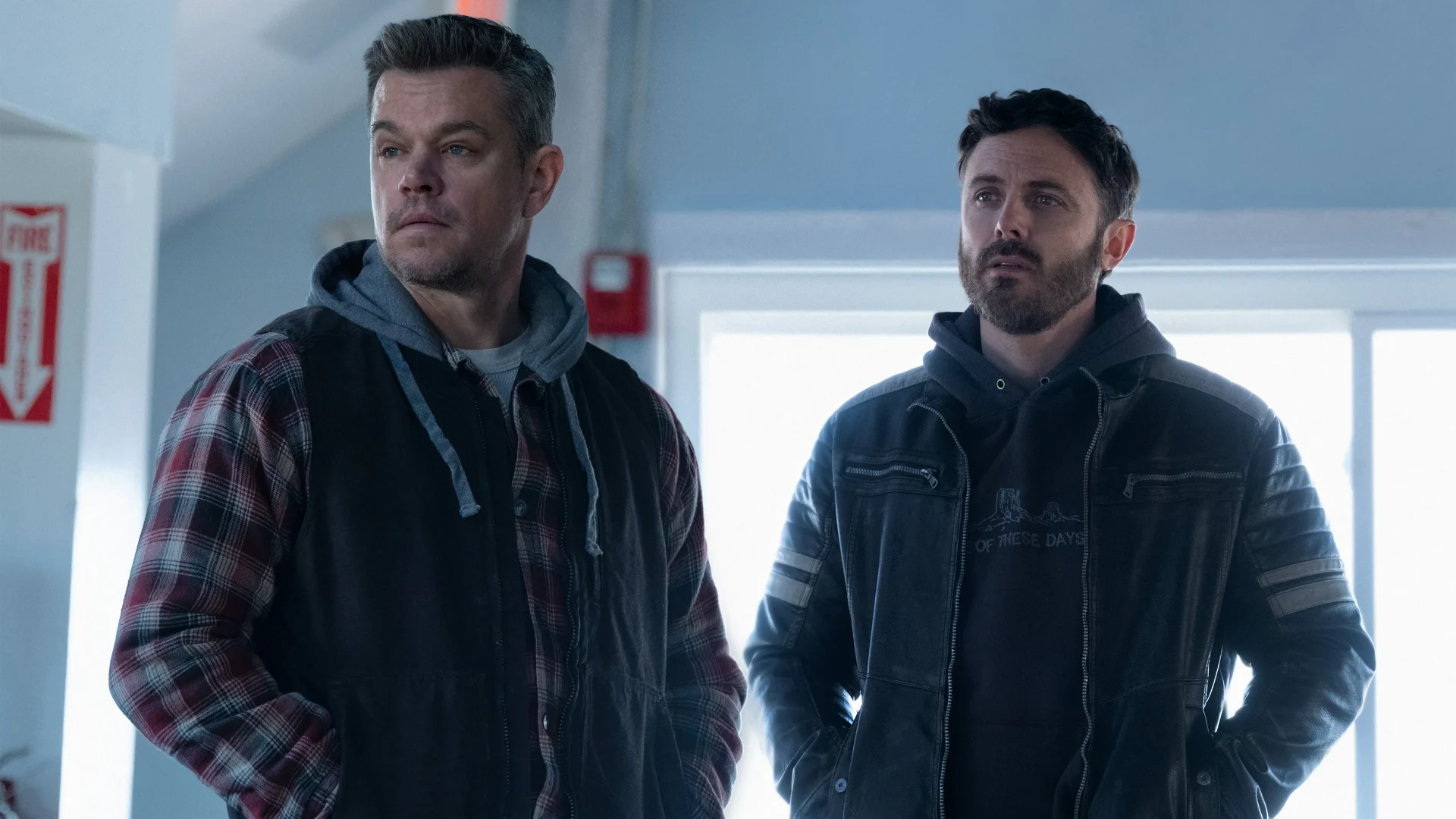
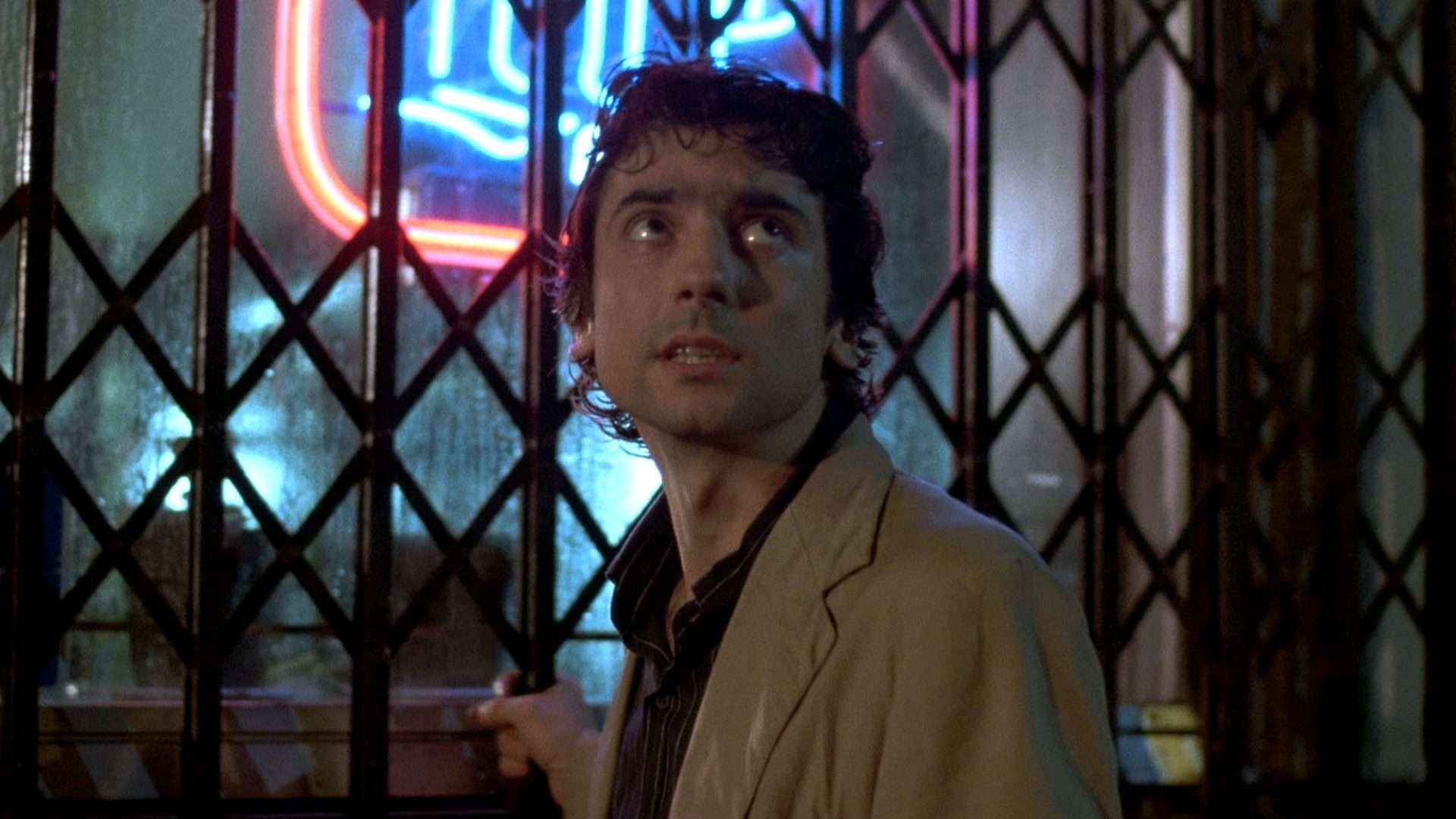
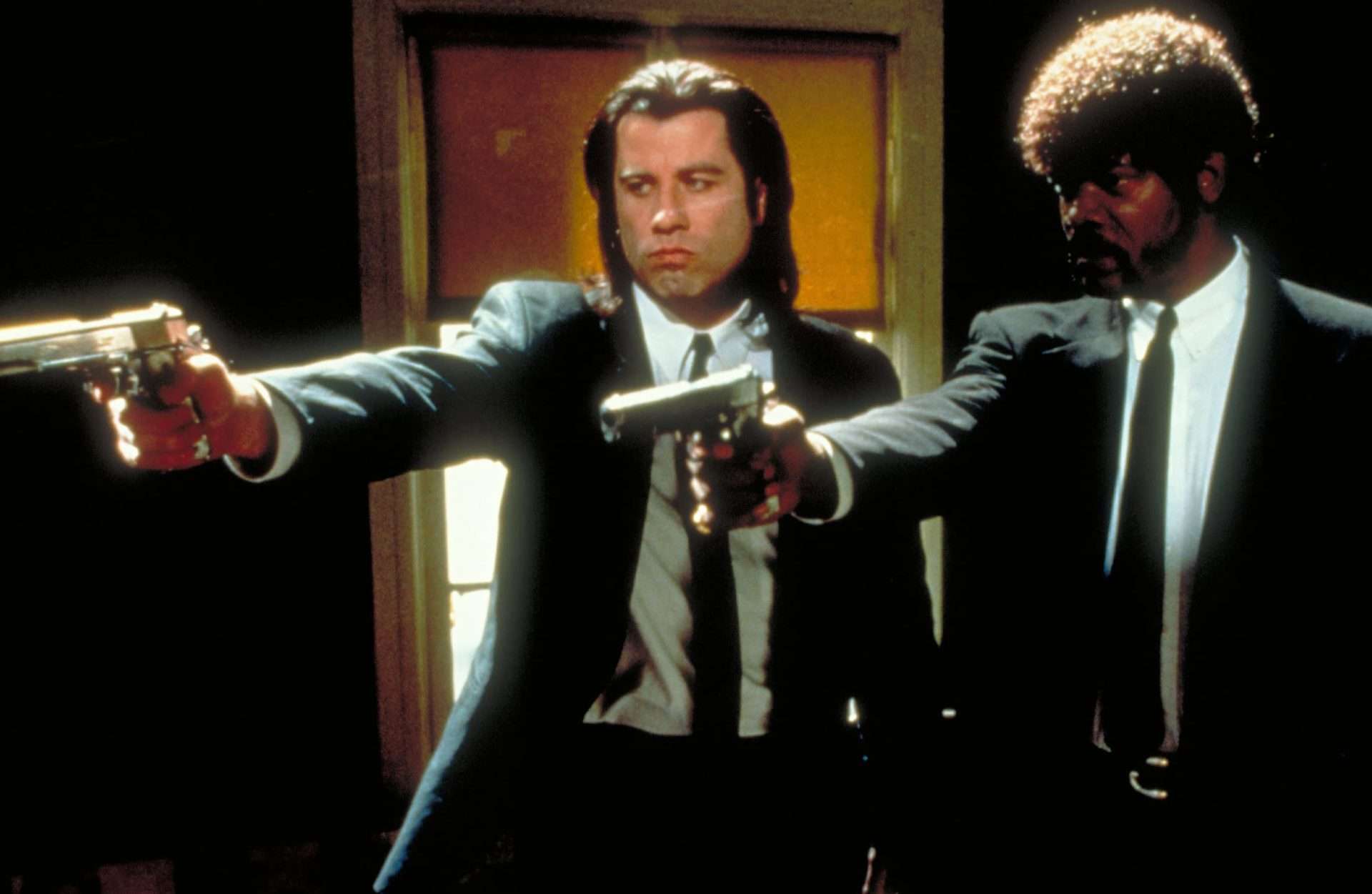
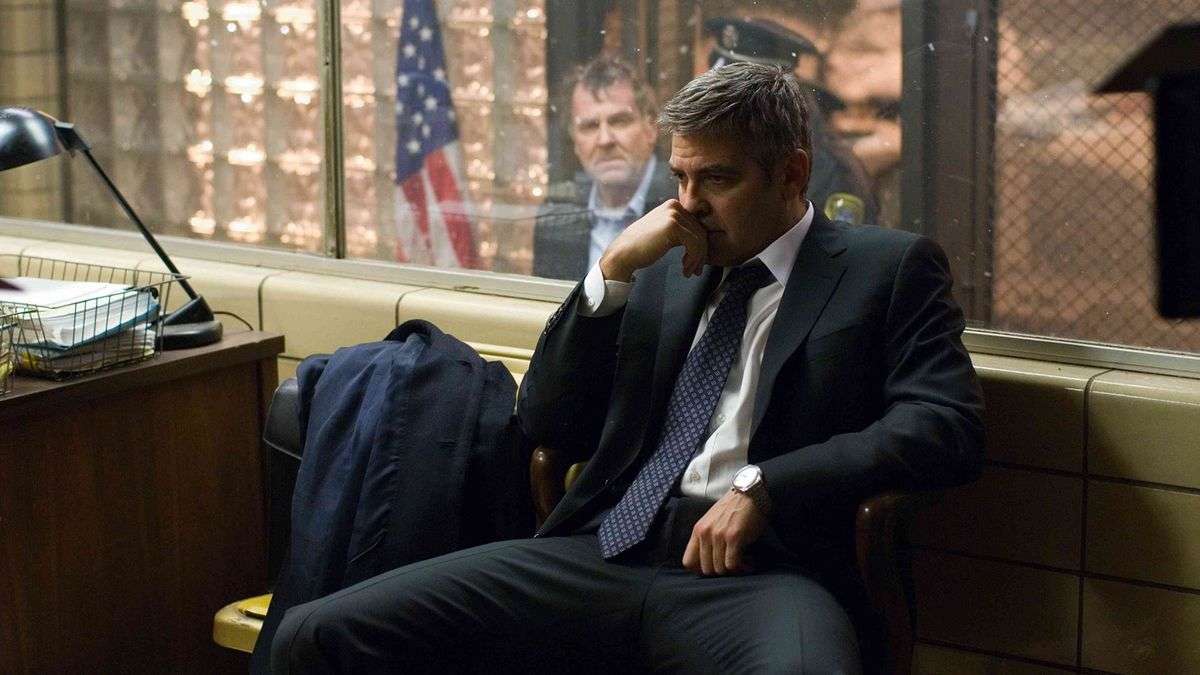
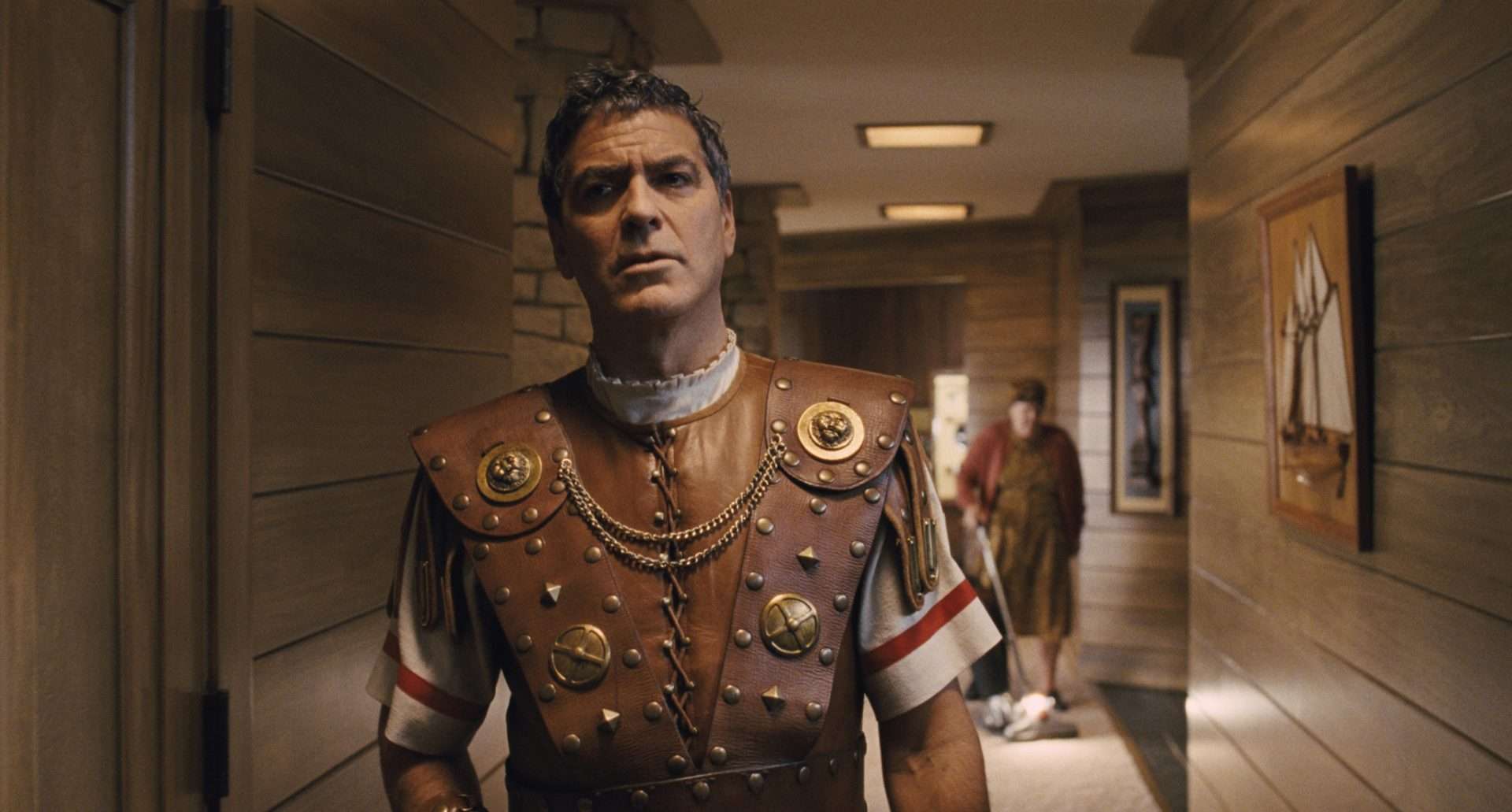
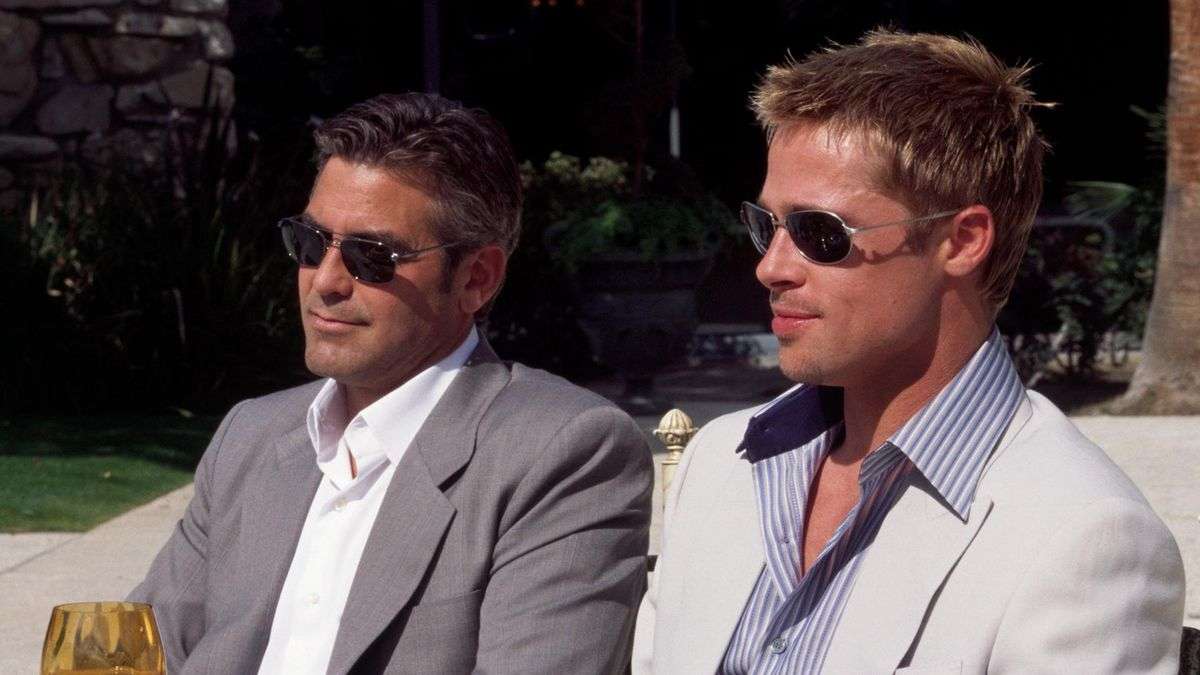



![I Was at Home, But [2019] – ‘Berlin’ Review](https://79468c92.delivery.rocketcdn.me/wp-content/uploads/2019/02/I-Was-At-Home-But-High-On-Films-2019-Review-e1550235024116-768x414.jpg)
![The Last Letter from Your Lover [2021]: ‘Netflix’ Review – Beautifully Shot, Yet Leaves Little to Desire](https://79468c92.delivery.rocketcdn.me/wp-content/uploads/2021/07/The-Last-Letter-From-Your-Lover-768x453.jpg)
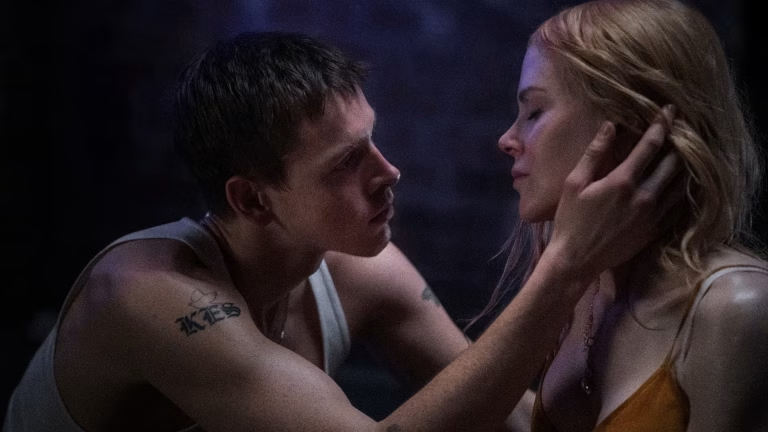

![My Dog Is Sick [2022]: ‘WFF’ Review – A Poignant, Subversive Psychosexual Experience](https://79468c92.delivery.rocketcdn.me/wp-content/uploads/2022/03/My-Dog-is-Sick-1-768x432.jpg)
